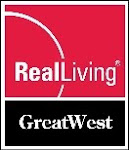In continuation from last week, today’s blog will be tips for the home buying process. Let’s talk about how to find the right home for you!
When looking for a place to live, it is important to consider the community. You should pick a community that corresponds to your family’s needs. Do you have children? If yes, you would probably want to live in a good school district. How close to the freeway or public transportation do you want to be? Do you want to live in a busy area or a more quiet setting? These are the types of questions you need to ask yourself. When you are considering a neighborhood, take a look around it and talk to the people who live there. You will be surprised how much useful information they can divulge.
Eventually, you will find a home you like and schedule a showing. When you are walking through the house, ask yourself:
· Is there enough space for the present and the future?
· Do you like the floor plan?
· Is the yard what you want?
· Do all the appliances work?
· Does the home look to be in good condition?
· Is it the right number of bed and bath rooms?
· Will all your furniture fit? (Both in size and style)
It is important to find out what appliances and fixtures will be left and what the sellers are taking with them. Also, you want to picture (and possibly see) the home in different weather and times of day. This is the best way to really understand the home and the neighborhood. You don’t want to face any surprises after you are in contract.
When viewing homes, you should take a lot of pictures. You should capture the inside, outside, all the rooms and the yard. Also keep an eye out for anything you think may be an issue. If you don’t get all the pictures you want the first time, you can always go back for a second look. Also, ask your realtor for his/her professional opinion -they are a great resource.
Searching for the right home can be a long and daunting process. There is no set “magic number” of homes you should look at before you make your decision. You just need to keep looking until you find what you want. On average, you can expect to see between 10 and 20 homes before you find the right one. The best way to streamline the process is to make sure your agent knows everything that is important to you. This will ensure that you don’t waste time looking at places you know you don’t like.
I hope this makes your home buying process a little easier. Next week I will go over what to do once you found the home you want.
As always, feel free to ask a question or leave a comment below. Have great rest of the week!


